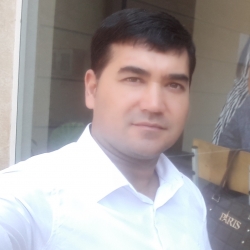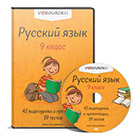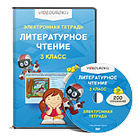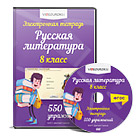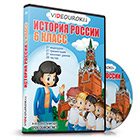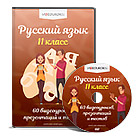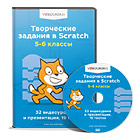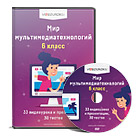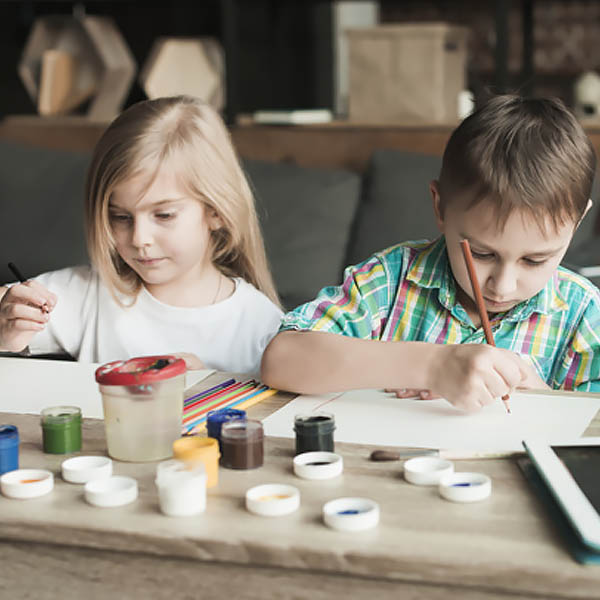To teach higher education students how to use the teacher-student relationship in teaching the younger generation.
Annotation: Today, in our place, which has a unique experience in training qualified, educated personnel, we must work hard to educate students in science and enlightenment, to train them as modern personnel in teaching. At a time when the innovations of science and technology of the XXI century are rapidly coming to life in the higher education system of Uzbekistan, innovations are taking place in the field of education. Curricula are being improved in all areas of education, including music education, and a new generation of literature is being created.
This article discusses how to teach higher education students how to use teacher-student relationships in vocational guidance for the younger generation.
Keywords: Higher education, classical heritage, training, qualification, scientific activity, renewal, change, all areas of education, teacher-student.
Introduction. Large schools for the study and teaching of classical heritage have been formed in Uzbekistan. These schools have the same achievements over the years, the traditions that are passed down from generation to generation. Our task is to preserve those national traditions, values and customs. It consists of its further enrichment and effective use in educating the younger generation. By reading the resolution of the President on the State Program for the Year of Harmoniously Developed Generation, one can feel the urgency of the issues raised in it.
The implementation of the decision has created ample opportunities for the wide involvement of talented and gifted youth in scientific activities, the creation of conditions for them to realize their creative and intellectual potential. We cannot be indifferent to the current process of rapid globalization.
Today, in our place, which has a unique experience in the training of qualified, educated personnel, we must work hard to educate students in science and enlightenment, to train them to meet the requirements of modern times in teaching. At a time when the innovations of science and technology of the XXI century are rapidly coming to life in the higher education system of Uzbekistan, innovations are taking place in the field of education. Curricula are being improved in all areas of education, including music education, and a new generation of literature is being created. Undoubtedly, this will give high results in the upbringing of a harmoniously developed generation. At the same time, it must be acknowledged that in recent years there have been gaps in the training of mature professionals in music education, as well as shortcomings and pressing issues.
Each era has its own rules and scales. The field of art is developing day by day. The demands of today's intellectuals, artists and scientists are more responsible and relevant than ever. The events taking place in the world, the process of renewal and change taking place in our country require an active approach to the development of society. Today's demand arises because of this necessity of life. Under this section, the most pressing issues in art and science are discussed. In the process of development, the art and culture of other nations are coming to us. they are
The solid foundation of our art is our national and classical melodies and songs. Listeners with less knowledge of the arts perceive the songs of the amateur performer as genuine art. And fans of our national music, who are very familiar with it, will quickly distinguish the original art. Therefore, it is important for students to listen to regular music. In carrying out this activity, it is important that the performances of the artists, as well as the music teacher, be a personal example to the students with their performance.
While listening to the sample of the status, the teacher should first give the necessary information about the selected sample, the history of who created the work, in what condition, the structure of its form, and then briefly perform the basis of the melody. If the sample status is in fact relevant to the path, then the ghazal used in it can be a concise commentary. At the same time, it is useful to teach the sample circle method separately. This practice is important in developing students' ability to understand status. However, in the later stages, developing students ’traditional performance skills, i.e., engaging and engaging them, can be assigned tasks such as being able to correctly perceive the rhythmic measurement and circle methods of samples based on listening, and being able to identify independently. Let's take a look at the past. In the treatises of oriental scholars on music, the music of maqoms has been studied and analyzed. This is not in vain, of course, because classical music is concerned with eternity with its deep content, its ability to reflect the human spiritual world, and its perfection. According to musicologist I. Rajabov, al-Farabi, Ibn Sina, Safiuddin Abdulmomin, al-Sherazi, Jami and others have repeatedly mentioned the positive effects of maqoms on the human psyche in their works. Scholars evaluate folk music works in terms of their ability to create different moods, first of all, they try to determine the possibilities of perceptions about the content of the work presented to them based on the psycho-emotional impact and needs of the listener.
Alisher Navoi emphasizes in his poems that when performed with musical tones, it becomes a powerful means of emotional influence, so its guiding features should be used for educational purposes.
Abdurauf Fitrat, a literary critic and musicologist who writes about Alisher Navoi's work, notes in his pamphlet Uzbek Classical Music and Its History that the melody "Qari Navo" or "Qari Navoi" was composed by Navoi. Alisher Navoi's poems have a deep philosophical content and high art, as well as a great melody and music. This is a testament to the great poet’s deep sense of the powerful spiritual power in music.
The fact that special attention is paid to the upbringing of harmoniously developed generation in our country, the announcement of 2010 by the President as the "Year of harmoniously developed generation" is a great historical event in the socio-political life of our country. For example, the harmoniously developed generation of well-educated boys and girls are young people, and all our knowledge and efforts should be focused on the upbringing of these mature young men and women, to teach them the secrets of knowledge. The most famous and valuable classical and maqom songs of our people's musical heritage are performed to the accompaniment of musical melodies connected with the best poetic samples of our classical literature, passed down from generation to generation, and still have their own beauty and without losing his devotion. It is also true that the great Eastern scholars have said many and many things about the artistic and emotional impact of such songs on human emotions in any case.
Another area that has a special place in the musical heritage of the Uzbek people is the songs with instructive motives. Such moral songs can be considered as an integral part of folk pedagogy. In the works of the great representatives of the classical poetry of the East, many works on the theme of exhortation have been created and are still being created. Most of the poems on this theme have been sung, loved and listened to by our people, and passed down from generation to generation in the tradition of teacher-student.
With the independence of our republic, our rich historical and cultural heritage began to be widely studied. As President IA Karimov said: "Thanks to the renewal and reforms in our society, we have the opportunity to use the high spirituality, moral culture, beautiful national traditions inherited from our great ancestors, who made a worthy contribution to world civilization."
The names of our great compatriots - Imam al-Bukhari, Hakim at-Termizi, Khoja Bahauddin Naqshband, Imam Moturudi, Burhaniddin Margilani - have been restored. The names of the great thinkers of the past - Abu Rayhan Beruni, Abu Ali Ibn Sino, Muhammad Khorezmi, Abu Nasr Farobi, Ahmad Fergani, Mirzo Ulugbek, Alisher Navoi, Kamoliddin Behzod, Muhammad Murad Samarkandi and representatives of the Jadid movement are mentioned with pride. . Memorial complexes have been built in their honor, books have been published and their activities have been widely publicized.
One of the most important issues today is to bring up our children, who are the bright future of our country, as decent, kind, noble and perfect human beings. However, today we have some shortcomings in the education of our students, especially in educational institutions, families and communities.
Leaving aside our national values and traditions, we blindly followed the culture of European countries and almost forgot about ourselves and our language. Perhaps, thanks to today, we will be able to revive our national culture, give them a new meaning and content, and give an oriental spirit to the work of education.
In educating a student, first of all, there are internal experiences related to his psyche. It is therefore difficult in the eyes of practitioners and theorists. But there are honorable things that can be achieved only if we classify them in teaching, create methodological manuals and programs imbued with the national spirit, use the beautiful teachings and advice of our thinkers wisely. One of the most important issues today is the formation and development of the spirituality of the younger generation. One of the most important tasks is to educate our specialists to be people of high human qualities, noble and moral convictions. From the distant past to the heyday of civilization, it is an indisputable fact that humanity is faced with the question of what to teach young people.
Research shows that one of the reasons why the peoples of Central Asia have reached a high level in the art of music is that our ancestors taught music to young people in the tradition of master-apprentices, and they had a very rich experience. However, we are not able to take full advantage of the rich heritage and experience of our ancestors in recent times. Their rich experience is not enough. In addition, we are witnessing that the incomplete teaching of the traditions of teacher and student ethics in secondary special, vocational education institutions has a negative impact on the morals and level of knowledge of our students.
Therefore, through the correct and effective use of the spiritual heritage left by our ancestors, that is, the traditions of teacher and student etiquette, the following positive changes can occur in the personal and professional qualities of our students, Students' respect and attention to the spiritual heritage of our ancestors will increase, their respect for their teachers, parents, friends and people will increase. It also serves as a basis for them to take up the profession they are learning.
After the independence of Uzbekistan, the process of preservation and development of our national traditions and heritage began, first of all, in the field of music, as well as in all social and spiritual spheres. This has created an opportunity to develop the achievements of the past, the accumulated artistic values in terms of nationality and humanity, based on the priority of universal values. Consequently, due to independence, our national music culture has gained strength from its ancient sources, served to form the national spirit, spiritual maturity, enriched with modern genres, inspiring our people to build a new society.
Music is a tool that plays an important role in the upbringing of a new generation, has a direct impact on the human spiritual world, shapes the worldview of the listener. At the same time, it satisfies a person's spiritual needs and enriches his emotions.
In human life, performance has always had its place, its function, it is not woven into fun, it is not performed into lust, it is not heard out of idleness, the instrument calls people to live, to struggle, to inspire to work, to love, to cure pain, who shared in the joy of happiness. That is why music is an expression of the people's dreams, a mirror of the people's psyche.
Conclusion. It is impossible to talk about a spiritually mature person without developing a sense of beauty.
As long as human beings cannot feel the beauty embodied in the external world around them, in the society in which they live, in the people with whom they interact, in the patterns of art that have been historically formed and practiced in a particular period, they will never be spiritually perfect. cannot rise to the level of man.
Music is one of the most powerful tools for shaping and nurturing these delicate emotions.
Explaining the role and importance of music culture in the development of the individual means, firstly, the question of man and his essence, secondly, the scope of enlightenment, and thirdly, the possibilities of music in spiritual maturity.
List of used literature.
1. Kyrgyzov. "Educating young people in the spirit of love for music." Tashkent. Uzbekistan Publishing House. 1989
2. O. Musurmonova. "Spiritual values and education of youth" .- Tashkent: Teacher, 1996
3. R. Ne`matov. "Treasure of our musical heritage". Art of Uzbekistan - 1998
4. S. Nishonova. "Education of harmoniously developed people in the development of pedagogical thought in the Eastern Renaissance." Tashkent: 1998,
5. O. Fayziev. Nurturing delicacy in music. Navoi. 1996.




